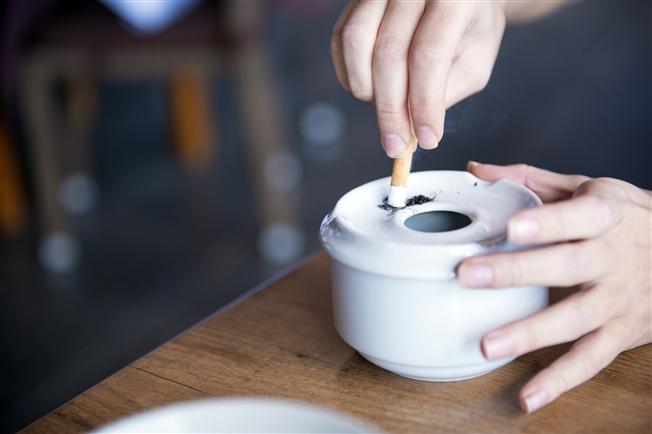What happens to your body right after you quit smoking

Breaking a bad habit is difficult, no matter what it is. But when it comes to smoking, you're putting your health at risk with every additional minute, hour, and day that you delay putting out your last cigarette.
Take a look at what happens to your body after you quit smoking—immediately and over the long term—according to the American Heart Association:
- In the first 20 minutes: your blood pressure and heart rate recover from the nicotine-induced spikes.
- After 12 hours: the carbon monoxide levels in your blood return to normal.
- After two weeks: your circulation and lung function begin to improve.
- After one to nine months: clear and deeper breathing gradually returns; you have less coughing and shortness of breath; you regain the ability to cough productively instead of hacking, which cleans your lungs and reduce your risk of infection.
- After one year: your risk of coronary heart disease is reduced by 50 percent.
- After 5 years: Your risk of certain cancers (mouth, throat, esophageal and bladder) drops by 50 percent. Your risk for cervical cancer and stroke returns to normal risk.
- After 10 years: You are half as likely to die from lung cancer. Your risk of larynx or pancreatic cancer decreases.
- After 15 years: your risk of coronary heart disease is the same as that of someone who does not smoke.
Quit smoking today. Register for our free tobacco cessation program.
Find resources to help you quit smoking
Of course, as most people who have smoked can agree, quitting isn't easy. When smoking has been a part of your life—whether it's for a short time or many years—it's difficult to turn your back on the habit altogether, even when the benefits are so clear.
"Quitting smoking isn't easy, but thankfully, there are many different options when it comes to tobacco dependency treatment," says Kara Chivalette, MPH, CTTS-M, a wellness education specialist at Bryn Mawr Hospital, part of Main Line Health. There are options like nicotine replacement therapy, group counseling, and the PA Quit Line (1.800.QUIT.NOW). "Keep trying until you find what works best for you."
Thanks to the emergence of smartphone apps and new technology, you can even hold yourself accountable with daily reminders of your commitment to quitting smoking. Websites like smokefree.gov offer daily text messages to encourage you during your journey to quit.
You're not alone in your quit smoking journey. Main Line Health offers a free six-session program called SmokeFREE where you can meet other participants and a facilitator who can provide support and advice. This program is currently being offered virtually on Zoom during the pandemic in the mornings, afternoons and evenings.
Commit to quit—and see what happens to your body after you quit smoking.
Main Line Health serves patients at hospitals and health centers throughout the western suburbs of Philadelphia. Quit smoking today. Register for our free tobacco cessation program.
 Content you want, delivered to your inbox
Content you want, delivered to your inbox
Want to get the latest health and wellness articles delivered right to your inbox?
Subscribe to the Well Ahead Newsletter.
